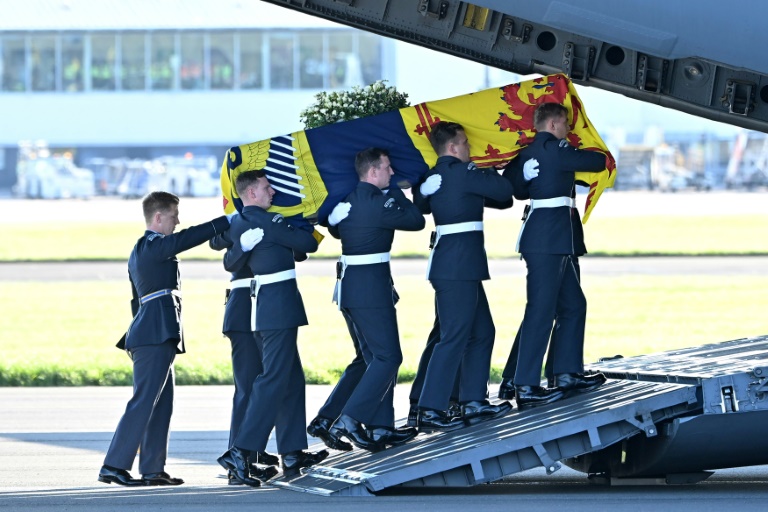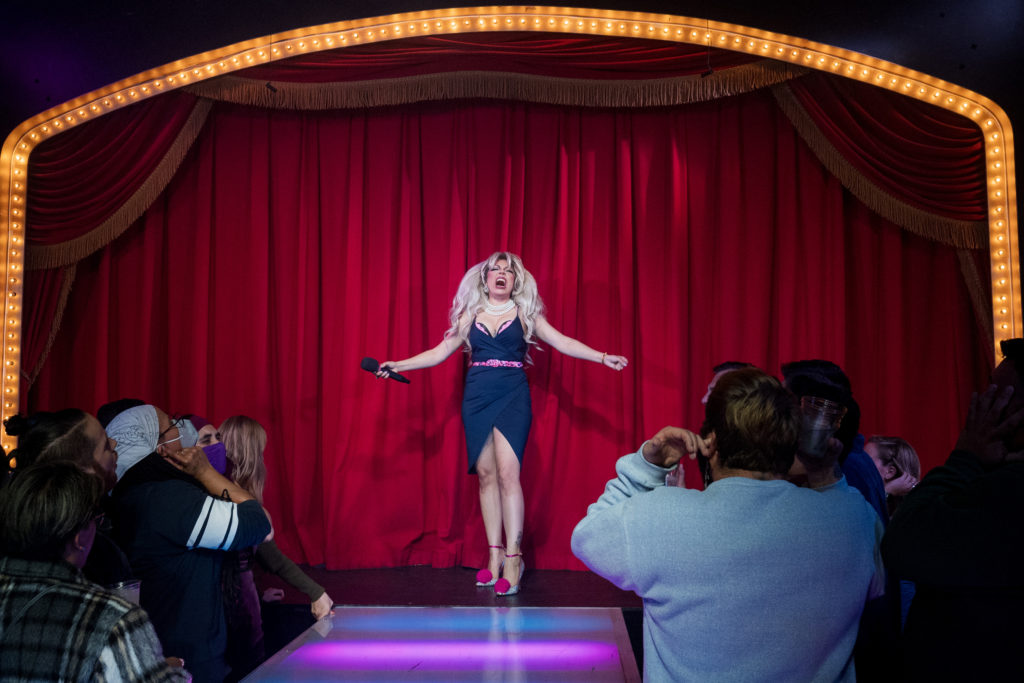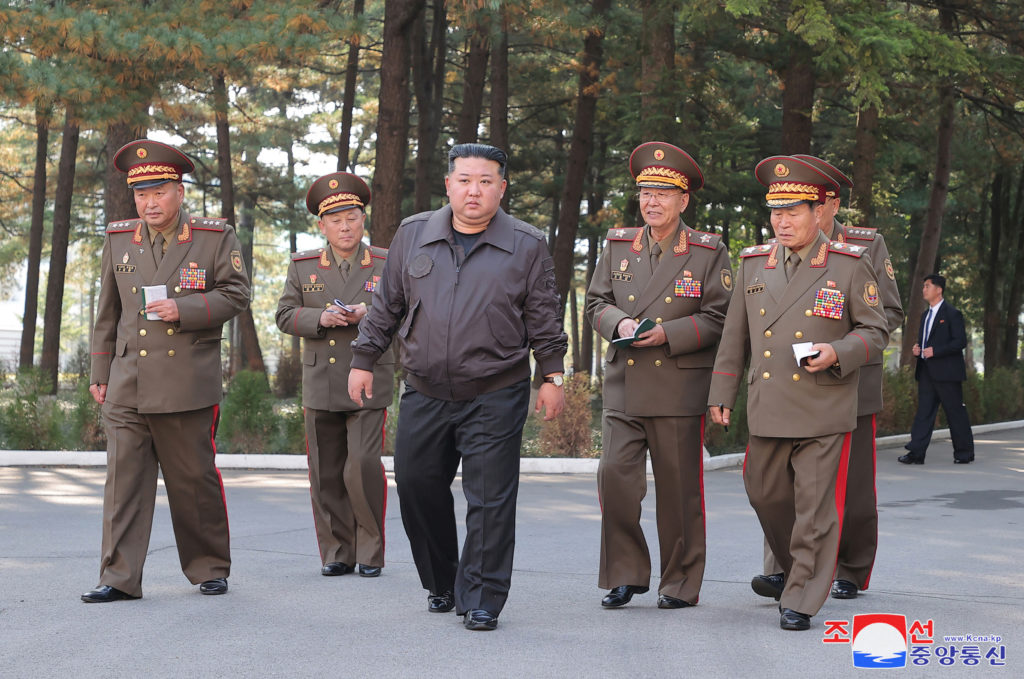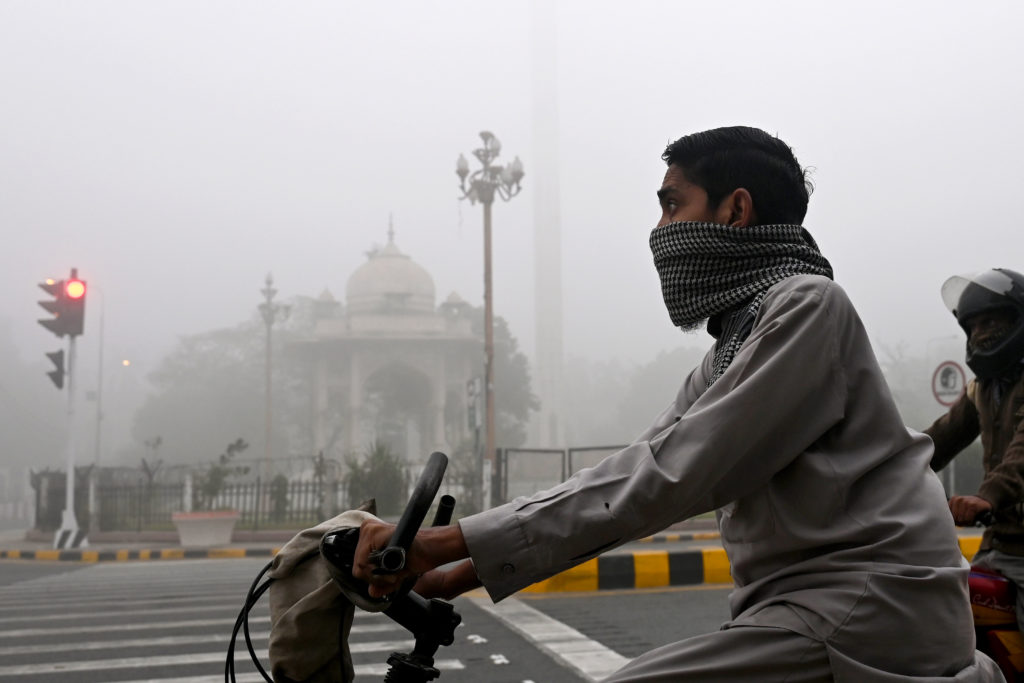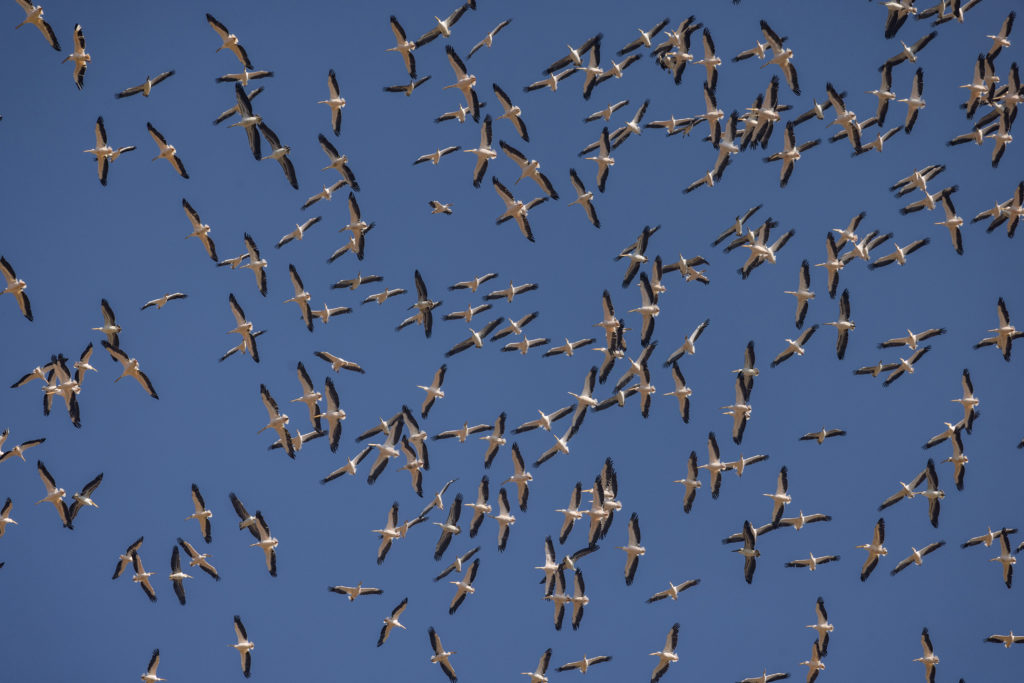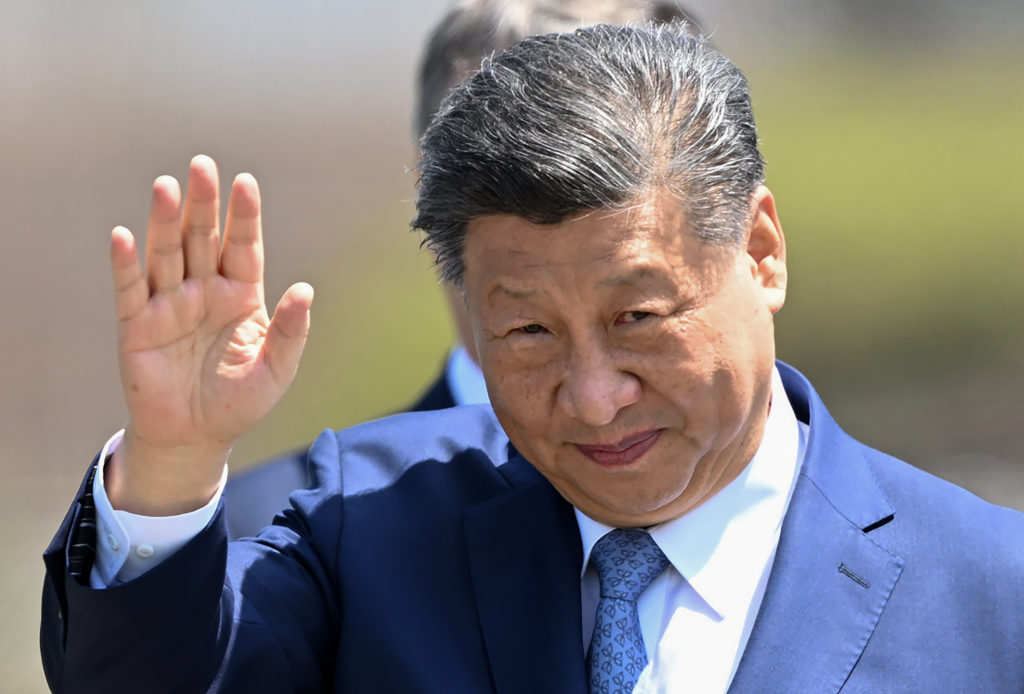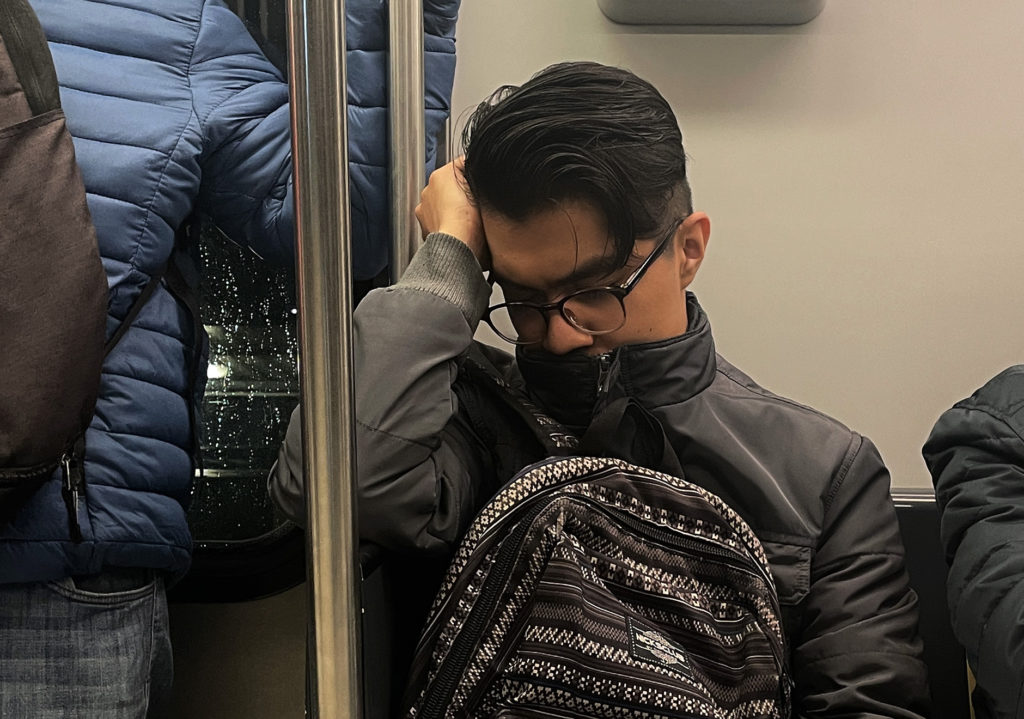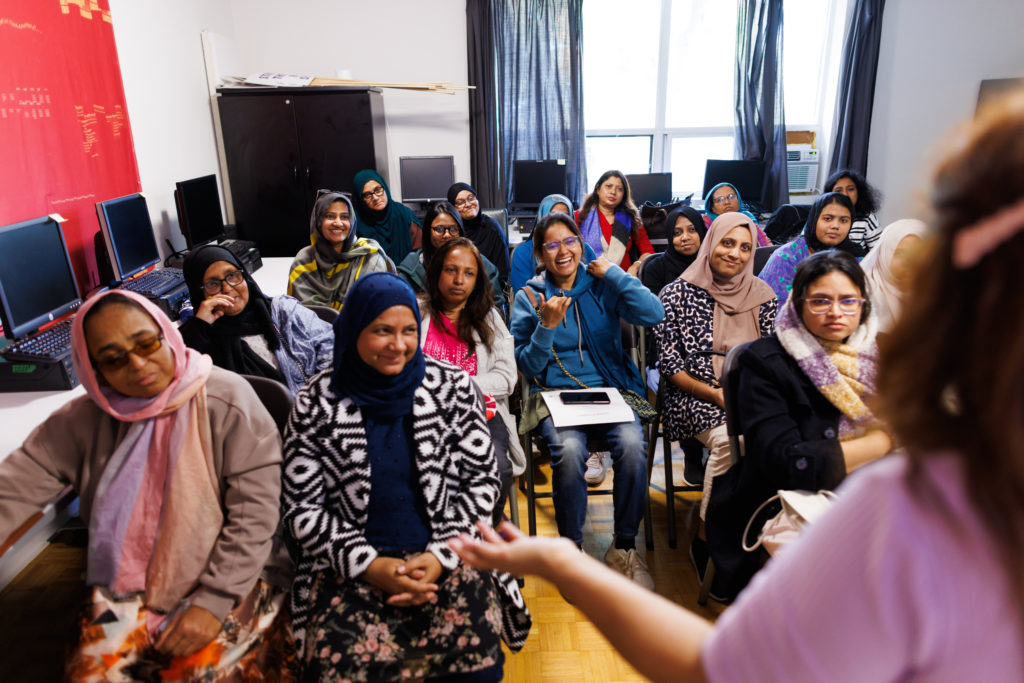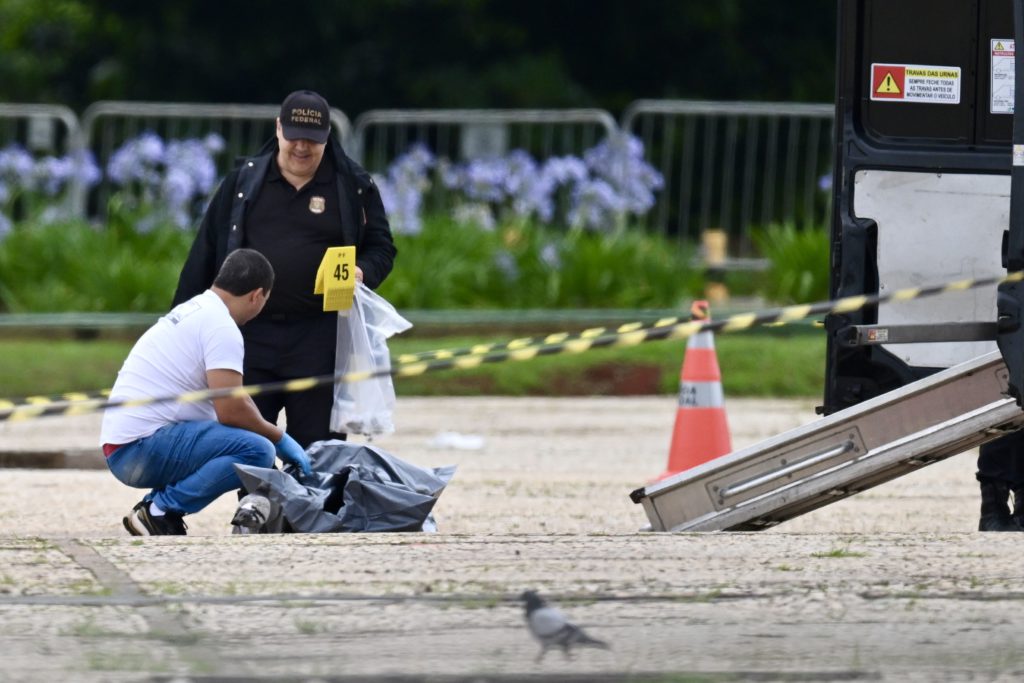The queen's coffin was borne onto a Royal Air Force aircraft from Edinburgh to London
Queen Elizabeth II left Scotland for the final time on Tuesday, as her coffin began its journey to London where crowds of mourners have begun queueing to pay their respects when she lies in state before a state funeral next week.
The casket was taken from St Giles’ Cathedral in Edinburgh, where it has lain “at rest” since Monday, after it was carried in a solemn procession through the Scottish capital to hushed crowds.
Outside the cathedral, the monarch’s bodyguard in Scotland, the Royal Company of Archers, formed a guard of honour as the coffin, draped in the royal standard, emerged to the haunting sound of a lone piper.
At the airport, as the Royal Regiment of Scotland, in ceremonial kilts, looked on, a Royal Air Force bearer party carried the coffin slowly on board.
The national anthem was played as the plane taxied to the runway and the queen, who died at her beloved Balmoral home in the Highlands last week aged 96, left Scotland for the final time.
The late monarch will first be brought to Buckingham Palace before being transported to Westminster Hall on Wednesday, where some well-wishers have been queueing for 24 hours already to bid farewell to Britain’s longest-serving sovereign.
“I just want to have a glimpse of the coffin and it’s going to be chaos at Westminster,” Joseph Afrane, 59, told AFP as he waited for the hearse to arrive at Buckingham Palace on Tuesday evening.
“You know, even if it’s sad, the atmosphere is actually quite nice here.”
Charles III meanwhile made his maiden visit to Northern Ireland as king on Tuesday as part of a tour to all four nations of the United Kingdom before the queen’s funeral on Monday next week.
As heir-to-the-throne, Charles made 39 visits to Northern Ireland, whose recent history has been scarred by sectarian violence over British rule and where a fragile peace has held since 1998.
His 40th visit comes as unionists loyal to the Crown feel their place in the wider UK is under threat as never before, with nationalists set to lead the devolved government in Belfast for the first time.
Meanwhile the possibility of a united Ireland is seen as growing.
But at Hillsborough Castle — the monarch’s official residence in Northern Ireland — he sent a message to political leaders that he would work for all communities in the divided province.
“I take up my new duties resolved to seek the welfare of all the inhabitants of Northern Ireland,” he told them.
The queen’s visit to Ireland in 2011 was the first by a British monarch since its independence from the Crown and was seen as a huge step towards cementing the hard-won peace in Northern Ireland.
– ‘Behind him’ –
Charles and his wife, Queen Consort Camilla, greeted crowds who had turned out early to catch a glimpse of the couple at Hillsborough.
Ceremonial gun salutes in his honour then rang out as the royal standard was raised above the castle southwest of Belfast.
Flowers, cuddly toys and handwritten remembrance notes of the late queen had been left at the gates.
“This is very important for Charles to come here,” Rhonda Irvine, 47, a wedding and events administrator, told AFP.
Describing Charles’s late mother as an “inspiration for him”, she predicted he would be a “very good” king.
Ann Sudlow, 61, a retired nurse from nearby Dromore, had also made the early morning drive “to show the king that we’re behind him as a country and Northern Ireland is supporting him”.
While large crowds welcomed Charles, visiting the deeply divided region could prove testing. Nationalist parties boycotted the proclamation of the new king but will meet him.
Belfast’s feuding political leaders are split between fiercely loyal unionists, and nationalists who want to reunify with Ireland, and the power-sharing assembly in Belfast is suspended.
Unionists are boycotting the devolved parliament at Stormont because of their opposition to post-Brexit trading rules that they say cuts Northern Ireland adrift from mainland Great Britain — England, Scotland and Wales.
Charles then went to an Anglican religious service in the city, also attended by Ireland’s President Michael D. Higgins, Prime Minister Micheal Martin and Foreign Minister Simon Coveney.
– Crowds –
Britain is in 10 days of national mourning for Elizabeth II, who was a fixture of the nation’s life and consciousness for seven decades.
Charles has seen his popularity recover since the death of his former wife Diana in a 1997 car crash — and has surged in recent days, according to a new survey Tuesday.
But he has also been embroiled in several scandals in recent years.
With republican movements gaining ground from Australia to the Bahamas, the new king faces a challenge keeping the Commonwealth realms in the royal fold.
Prime Minister Jacinda Ardern said her country New Zealand, where Charles is also head of state, will likely become a republic in her lifetime.
But she added: “I don’t see it as a short-term measure or anything that is on the agenda soon.”
The queen’s coffin will be on display to the public from Wednesday when the king will lead a procession at precisely 2:22 pm (1322 GMT) attended by his three siblings, Anne, Edward and scandal-hit Andrew.
In Edinburgh, thousands of people queued throughout the night.
“It’s part of history… We’ll never see this again,” Lynn Templeton, visiting Edinburgh from northwest England, told AFP after filing past the coffin.
One woman, who gave her name only as Vicki, took an early train from Glasgow with her nine-year-old son “just to pay our respects”.
“It’s “just a moment in history, once in a lifetime,” she said.
– Security –
An unprecedented security operation is being put in place for the state funeral, which is expected to be attended by hundreds of heads of state and government, as well as global royalty.
Neither Russia nor Belarus have been invited, however, following the Kremlin’s invasion of Ukraine in February.
“It’s a massive challenge for the Metropolitan Police and for me personally, but we have been preparing for many, many years,” the newly appointed head of the London police force, Mark Rowley, told Sky News.
Soldiers from the Household Division of regiments, which form the monarch’s bodyguard, began practising for the funeral procession in London overnight Monday to Tuesday.
The vast crowds expected in London have resulted in few available hotel rooms, while transport bosses have warned of strong demand.
Hotel prices have rocketed, with a basic windowless basement room in Piccadilly Circus, central London, available for £300 ($350) per night.
“Our hotels in central London and Windsor are literally sold out,” budget hotel chain Travelodge said in a statement.
But not everyone shares the public mood of sadness and remembrance sparked by the queen’s death at her Balmoral estate in Scotland last Thursday.
British police faced criticism from civil liberties groups on Tuesday over their treatment of anti-monarchy protesters who have publicly challenged Charles’ accession to the throne.
Video footage and witnesses have drawn attention to police arresting or intimidating people who shouted slogans against the monarchy or held up placards reading “Not My King”.
“Police officers have a duty to protect people’s right to protest as much as they have a duty to facilitate people’s right to express support, sorrow, or pay their respects,” campaign group Big Brother Watch said.
bur-am-jit-phz-adp/gw

